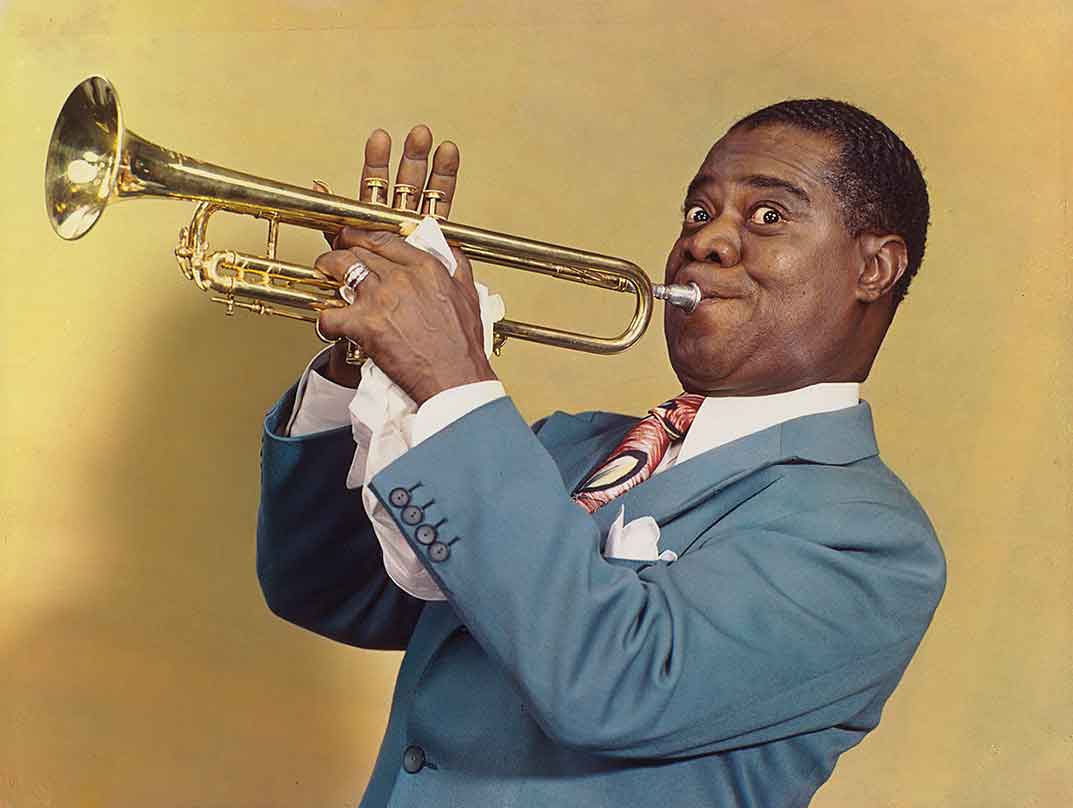

Louis Armstrong rose from a rough neighborhood in New Orleans, Louisana to eventually become one of the most influential cultural figures of the twentieth century. Raised in poverty by a single mother, Armstrong grew up hearing the sounds of "spasm bands" playing music on the streets using pots, pans, and washboards. When he was six years old, a neighbor for whom Armstrong occasionally worked bought him a cornet from a local pawn shop. Although he dropped out of school at the age of 11 and was occasionally in trouble with the law, he started playing around town and developed a reputation as a promising musician. In 1918, he took a job performing in a brass band on a Mississippi steamboat, where he learned to read music.
By 1922, Armstrong had moved to Chicago to play with King Oliver, the leader of the Creole Jazz Band. There were rumors of jealousy as Armstrong soon became far more popular than Oliver himself. They parted ways (apparently on good terms) in 1924 when Armstrong moved to New York City to join Fletcher Henderson, who led the most prominent black band in the country. Eventually Armstrong became so popular that he was able to sustain a solo career, and he made a living touring and playing for the next four decades.
Armstrong gained a reputation not only as an excellent trumpet player, but was well known for his gravely voice, scat-singing, and his skill at improvisation. His charismatic personality and tales of life in New Orleans endeared him to audiences wherever he went, and Armstrong was one of the first musicians to transcend the racial segregation of the time, becoming highly popular among both black and white Americans alike.
Yes Suh!
Saint James Infirmary
Ain't Misbehavin'
Go Down, Moses